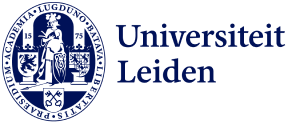About this minor
Indonesia, a nation that has rapidly evolved from its colonial roots into the world's third-largest democracy, a significant player in the Muslim world, and one of the globe's most influential economies. This joint minor program invites you to delve into this remarkable nation, where tradition intersects with tomorrow. Picture a nation undergoing a profound urban revolution. Indonesia is committed to the development of 100 smart cities and currently builds a new capital inspired by the United Nations' sustainable development goals. Yet, amidst its impressive progress, Indonesia grapples with disparities, particularly between urban and rural areas, which manifest in infrastructure deficits and limited access to essential services such as infrastructure, health and education. Throughout the program, you'll delve into these complex issues and explore how your insights and ideas can contribute to bridging these gaps. Indonesia serves as an intricate microcosm of contemporary global challenges, from climate change and sinking cities to biodiversity loss. However, it's also a hotbed of inventive solutions, such as green practices rooted in Islamic traditions and time-tested methods of water management. Our joint minor program revolves around rapidly urbanizing regions in the global South, highlighting the ingenious forms of resilience that these regions exhibit. More importantly, it empowers you, as an LDE student, to think critically about these challenges and take the lead in creating positive change. This program aligns with the Indonesia – Netherlands Universities Consortium on Sustainable Futures (INUCoST), in which the LDE universities and their Indonesian partners focus on crucial themes such as Energy Transition, Water Quality Management, Biodiversity, Digitalizing Society, Public Health, Heritage and Tourism. Concepts like co-creation and citizen science will be your guides as you explore how Indonesia is shaped by its potential future scenarios. Utilizing mixed methods such as multimodal ethnography, design, and prototyping, you will make the future tangible and engage in meaningful discourse.
Good to know
There are additional costs associated with this course:
- The contribution per student for local transport costs, accommodation and food is 600 euros (still pending, the final amount will be announced during the information meeting).
- In addition, students bear costs for their plane ticket to Indonesia, their visa, insurance (universal health insurance with World Coverage, third party liability, travel insurance) and vaccinations (depending on personal travel history and doctor's advice). The total costs differ per person but are estimated at an average of 1500 euros.
For more information, you can contact Prof.dr. B.A. Barendregt
Teaching method and examination
- Critical reflective analysis of the ways in which Indonesia and other countries in the global South deal with the major challenges of our time, the often ingenious and resilient answers they manage to find and what we in the global North can learn from them.
- Gain an understanding of the challenges of interdisciplinary work using concepts such as co-creation, citizen science and the application of methods from different disciplines, including ethnography, surveys, design and prototyping
- Knowledge of country, language and culture, and using this to understand the most pressing problems and communicate about them with Indonesian counterparts.
- Learn how to conduct independent research within a multidisciplinary and multinational team. Students go through all phases of the research cycle. This means, among other things, developing a chosen research theme; operationalization based on theory; writing an outline; collecting research data; analysis and reporting of data; presentation in the form of a short policy report at a one-day conference
Required prior knowledge
The Future Challenges LAB is to be held entirely in Indonesia and runs from early September to beginning of December. In executing this joint minor, collaboration is sought with the Faculty of Social Sciences at Universitas Indonesia. The program's coordination is meticulously managed from the LDE-KITLV office in Indonesia and conducted at the Depok Campus of Universitas Indonesia, Jakarta, where students will stay for three subsequent months. Collaborate with fellow students from diverse disciplines to establish your multidisciplinary theme project. Fieldwork takes you to the bustling city of Jakarta, the newly developed capital IKN, or the intricate world of water management in the Surabaya region. This exceptional minor program culminates in a written policy memorandum, offering you a platform to present your insights and solutions to a broader audience. No prior knowledge of Indonesian language and culture is required and students from different disciplines are welcome. However, an interest in working with students from other disciplines and a willingness to test new methods is a requirement.
<br>Additional information
- More infoMinorpage on website of Leiden University
- Contact a coordinator
- CreditsECTS 30
- Levelbachelor
- Selection minorNo
Offering(s)
Start date
1 September 2024
- Ends2 February 2025
- Term *Minor semester 1
- LocationJakarta
- Instruction languageEnglish
Minor has ended

